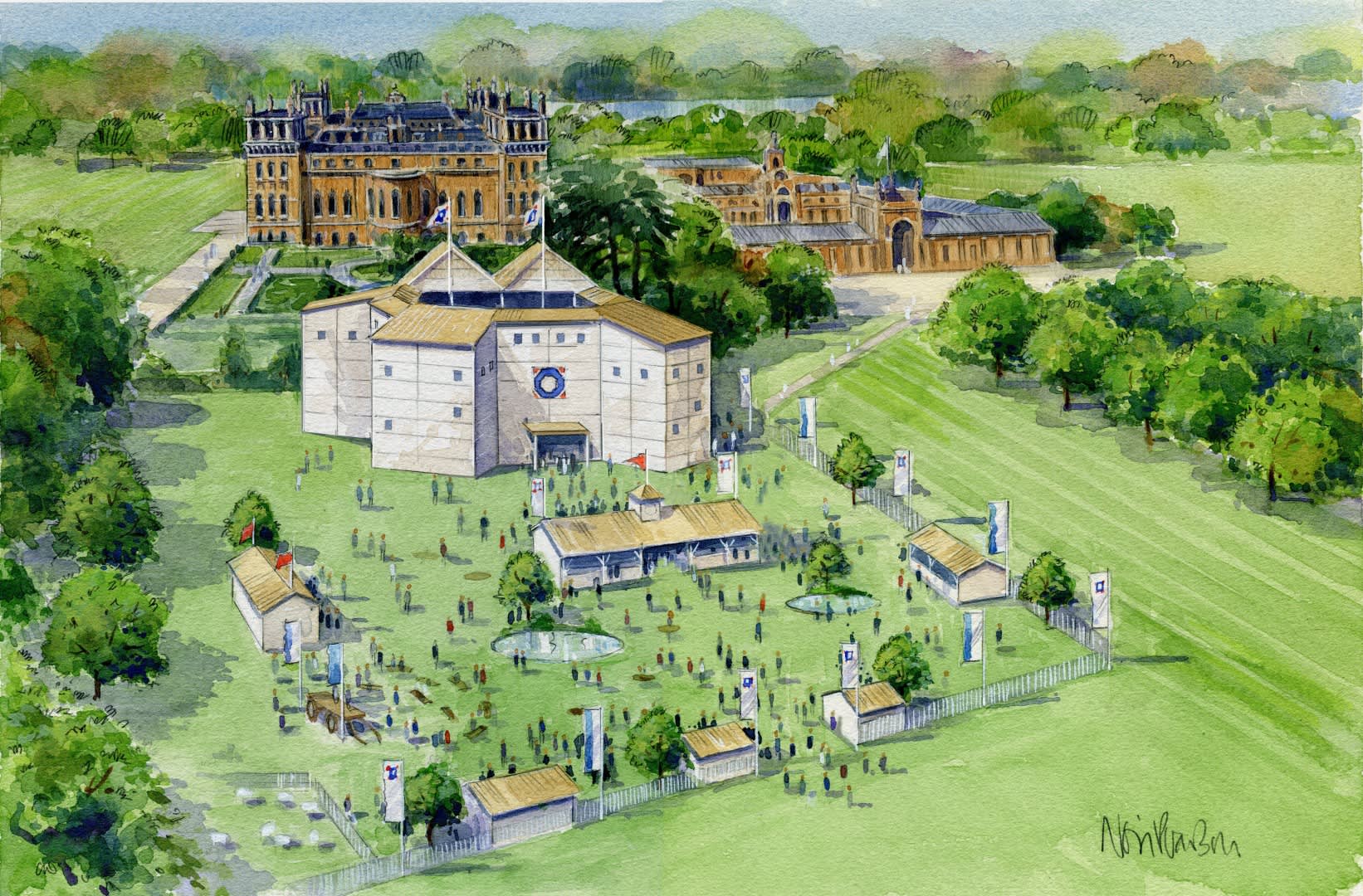Shakespeare’s Rose Theatre arrives at Blenheim Palace this summer. Europe’s first ever pop up Shakespearean theatre will present four of Shakespeare’s most popular plays, transporting audiences to the intimate atmosphere of an Elizabethan playhouse, with plenty of breathtaking, spine-tingling and heart-stopping moments. As part of Rose Theatre’s highly acclaimed inaugural season in York last year, Juliet Forster directed A Midsummer Night’s Dream, which she’s reviving for the season at Blenheim alongside directing Romeo and Juliet. We caught up with her at the season launch to talk Hermia, hate and happy endings.
What’s the difference between the York Dream and the Blenheim Dream?
The majority of the cast are new to it, and because you’re not trying to get people to just do mechanical replicas of what was done before, there will be a little shift, but I think the overall production will feel and look the same as it did. Its vision, its design, the world I was wanting to create, and some of the choices around particular characterisation – one of the things that made it very funny – are things we will try and retain.
Initially, was the only prerequisite of a Shakespearean comedy a happy ending?
That’s why some of the comedies today are slightly more complicated for us, because we question whether they’re really happy endings. But the actual overall meaning was absolutely that it ended happily. Because if you think about it, there’s comedy in Hamlet, there’s actually quite a lot of comedy in Macbeth; it’s not just about being funny, it’s more about the happy ending – that’s its trajectory whatever problems and trials people go through.
So in terms of the actual lines in the comedies, are they any funnier to you than the ones you might find in a tragedy?
There are definitely more comic lines, as a percentage, if you like. But what happens to the characters is very funny; it’s not necessarily about the wit, which you get in tragedy and comedy, it’s also about the situations and how people react to them. The drive for me was to try and make all of that funny. In Dream, with the lovers who obviously undergo all the difficulties, the shifting of attention from one woman to another woman isn’t that funny. But last year our Hermia was often picked out as being one of the funniest elements of the entire play, which was a real success because I think the lovers are funny, but you have to really draw out what is humorous in their situation, what it is that allows you to laugh at their misfortune rather than feel sorry for them.
Name one of your favourite productions of Dream.
Greg Doran’s version for the RSC was just gorgeous, all about the world of imagination. He found one of my favourite Pucks who was like a stroppy teenager which was really funny. There were lots of things that for me came across quite differently through that production. At the beginning Theseus and Hippolyta are having a big sword match in a very playful way; you meet two people already in love, they’re on an equal footing which I really liked.
You’re also directing Romeo and Juliet – what’s its relevance today?
The underlining theme for me in it is that love is more powerful than hate but hate is so much easier to pass on to our children – I think that’s quite a strong message for today. But also you’re looking at a world where masculinity is defined by violence, a much harsher world than in Dream. The young men are willing to give their lives for that struggle against one another and who they believe they are. Femininity is seen as weakness and there’s a whole sense of how we play a role. I think about how we present ourselves through social media today, we have this perfect Facebook life that looks wonderful, and actually we hide who we really are behind it sometimes. The themes of what you reveal of yourself, what you hide, what you risk, are timeless.
The Rose Theatre Blenheim season will run 8 July-7 September with A Midsummer Night’s Dream, Macbeth, Romeo & Juliet and Richard III.










